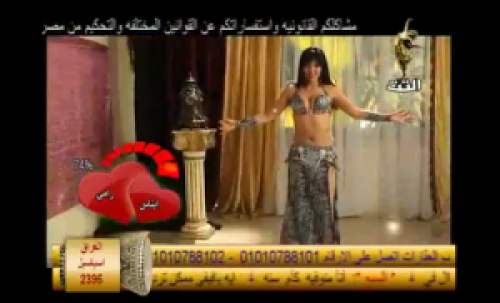Dance of Politics: Q & A with Egyptian Writer Hamdy El-Gazzar
by Nina Mohan / June 29, 2012 / 2 Comments
Hamdy El-Gazzar is an Egyptian writer and playwright, and a contributor to Sampsonia Way. His column “From Egypt” features on–the–ground coverage of current events and analysis of Egypt’s cultural atmosphere.
Recently El-Gazzar wrote a column entitled “The Belly Dance,” which examines how the traditional dance was used for political motives in the run-up to the Egyptian elections. El-Gazzar surmises that politicians from Mubarak’s era sought to maintain control of the country by claiming that the Islamists would limit access to belly dancing and other beloved arts if elected.
In this Q&A, El-Gazzar discusses the importance of belly dancing and art in Egypt and the possibility of governmental repression following the results of Egypt’s presidential election.
What role does belly dancing play in the life of the average Egyptian?
Belly dancing is a normal, everyday activity for Egyptian women and girls, especially as a traditional wedding custom. As an art, it lives in night clubs and movies. Nobody can prevent people from performing and enjoying it.
Is it reasonable for Egyptians to worry about an Islamist government repressing what you’ve called “sources of joy and happiness,” like belly dancing?
Yes, it is very reasonable for Egyptians to be afraid of an Islamist regime, especially for that reason. Most members of the Islamist political parties base their discourse on attacking freedom of expression and the arts. They have a long history of forbidding singing and belly dancing. They assassinated the liberal thinker Farag Foda. They also attempted to kill the writer Naguib Mahfouz, whom the Salafis referred to as “the novelist of belly dancers” and kafir, or “disbeliever” in Arabic. Most Islamists are against the freedom of creation.
Do you think Mohamed Morsi, the Muslim Brotherhood candidate who won the election on Sunday, will uphold traditions like belly dancing and other arts?
He claims that he likes to listen to Umm Kulthum and read old poetry. He did not say that he likes to watch belly dancing. But he will not be able to change the culture of this country at all.
Like his community, Mohamed Morsi is a pragmatic man and he will not make a big fuss about belly dancing, movies, and music. He has enough problems to deal with and will not be able to impose his cultural view on Egyptian arts.
How crucial is the future of the arts in the current political atmosphere?
The future of the arts in Egypt will depend on how much power the Islamists have. They will face a strong resistance from artists and writers. In the meantime, there are big artistic and political movements in place to defend freedom of arts and creation, like the Cultural Constitution Movement, which I helped found, and The Front for Egyptian Innovation, which a lot of filmmakers and writers are members of. We have no fear because the Egyptian people can’t live without art and creation. It’s like telling people not to breathe.







2 Comments on "Dance of Politics: Q & A with Egyptian Writer Hamdy El-Gazzar"
Interesting read. Knew very little about the Egyptian arts scene but by the sounds of it big things are happening!
As an Egyptian, I can say that this person is not entitled to/does not speak on my behalf. Most Egyptians are more concerned about securing their day’s meal before even caring to watch belly dancers. We consider current people involved in film-making as the lowest of society. They try hard to associate themselves with reputable thinkers, writers and singers to assume an un-earned status.